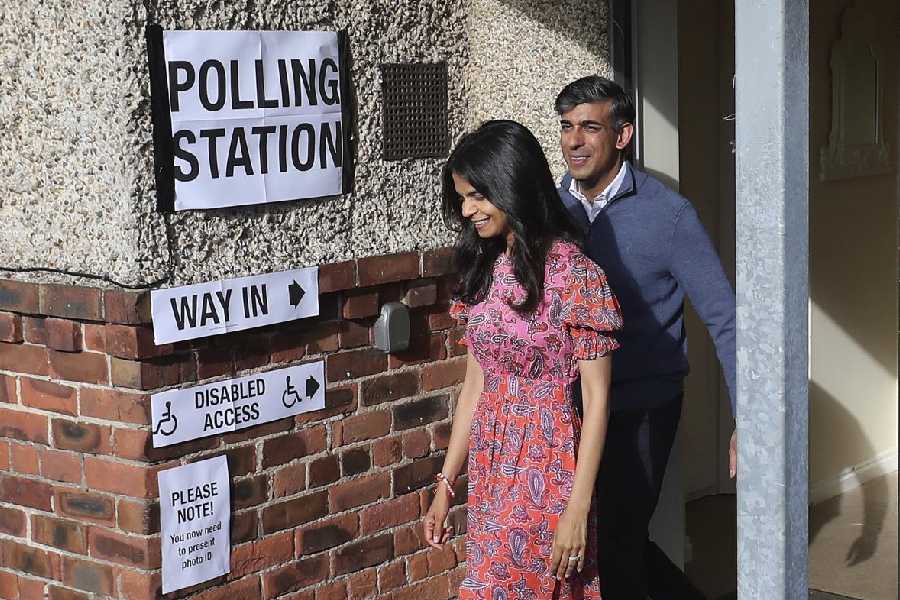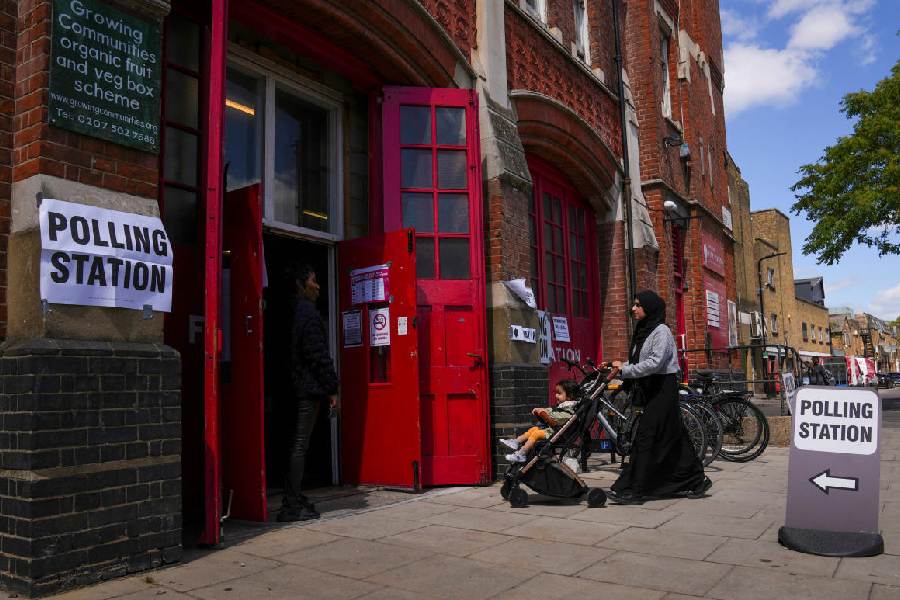British Prime Minister Rishi Sunak won’t make it to any list of the UK’s best prime ministers. But he has an assured place in the history books as Britain’s first Asian prime minister – even if he only lasted 20 months in the job.
Britain has a brutal system by which the losing prime minister has to leave his home in 10, Downing Street as soon as the results come in. And it's almost certain that by this time tomorrow Labour Party leader Keir Starmer will be Britain’s new prime minister and walking through the famous black door into No 10. Sunak and his family have probably already moved to one of their London homes in Kensington.
Sunak gets his place in the history books but he was dealt a dud hand – and he then proceeded to play it badly. As voting was about to begin he put out a gloomy appeal to voters. It was not to vote him back to power but to ensure that the opposition Labour Party did not win a gigantic ‘super-majority'.
Some pollsters have predicted that the Labour Party will come into office with the hugest majority since 1832. There’s even an outside chance that the Conservatives will be pushed to third position in the party rankings with the Liberal Democrats ahead of them. If that happens it would be an epic comedown for the party of Winston Churchill and Margaret Thatcher which has ruled Britain for most of the last 100 years.
The last Liberal Party Prime Minister was David Lloyd George who led Britain through World War I and till 1922. But there’s now an outside chance that its successor party, the Liberal Democrats, could now edge past the Conservatives. That despite the fact that Liberal Democrat leader Ed Davey has spent most of last month pulling off showy stunts like bungee jumping and going down a waterslide. But Davey insists that his electioneering has been deadly serious and that this election could go down in the record books. “Elections like this do not come around very often. This is a once-in-a-generation chance to put an end to years of Conservative chaos.”
But the Conservatives did bring about one giant change in British politics. Former Prime Minister David Cameron who made the reckless and unnecessary decision to have the Brexit referendum, was also responsible for promoting Asians within the party. Boris Johnson followed suit.
In the last four years Britons might have been forgiven for thinking that Asians had come to occupy centrestage in British politics. Take the Home Office for instance, one of the three Great Offices of State. In 2018 British Pakistani Sajid Javid became the first Asian in the job and he was followed by Priti Patel, the ultra-hardline right-winger who looked at the possibility of sending illegal immigrants to St. Helena, the remote island in the mid-Atlantic, where Napoleon Bonaparte ended his days.
Patel was followed by the equally hard-right and even more publicity stealing Suella Braverman who was sacked after she openly differed with Prime Minister Sunak. Braverman’s successor was a Black politician James Cleverly. And at the other Great Office of State, Sajid Javid was followed as chancellor of the exchequer (the equivalent of our finance minister) by Sunak.
If Sunak is tossed out as party leader in the coming days, Braverman will almost certainly be in the running for his job. Another candidate aiming for the leader role will be British Nigerian politician Kemi Badenoch. Labour, which was traditionally the party that won the biggest chunk of the Asian vote, has far fewer Asians at the top. Lisa Nandy was briefly the shadow foreign secretary but then moved to a lesser post.
What’s amazing is that there’s remarkably little comment about the rise of Asian politicians. But anti-immigrant feeling is stronger than ever. The narrowly won Brexit vote was largely about immigration from countries like Poland and other Eastern European nations. The impact of anti-immigrant feeling has been particularly visible in what was called Labour’s Red Wall in the poorer regions like the North Midlands and Northern England. In the 2019 elections these regions turned to the Conservatives because of Brexit. Starmer hopes to turn the region back to voting Labour.
Britain tilts left, Europe to the right
Let’s assume that the Labour Party comes to power. If that happens Britain could find itself sailing in the opposite direction from the rest of Europe. Marine Le Pen’s ultra-right wing National Rally notched up 33 per cent of the vote in the French parliamentary elections. If the Left and Emmanuel Macron’s centrist Renaissance Party cannot patch together a coalition the next French prime minister could be from the National Rally, the successor party to the grossly bigoted National Front led by Jean-Marie Le Pen. Similarly, in Italy Giorgia Meloni has always been an extreme right-winger though she has attempted to carve out a more centrist image. Hungary’s Viktor Orban is the one EU member who insists the West is too anti-Russian.
And in the Netherlands, the far-right Geert Wilders’ party will be part of a new government that has just been sworn in. In Germany, the hard-right AfD won a large chunk of votes in the European election (though the European elections are normally a protest vote). Most alarmingly, it appears to be the younger voters who have thrown in their lot with the extreme right. How Starmer will negotiate these tricky waters remains to be seen.












